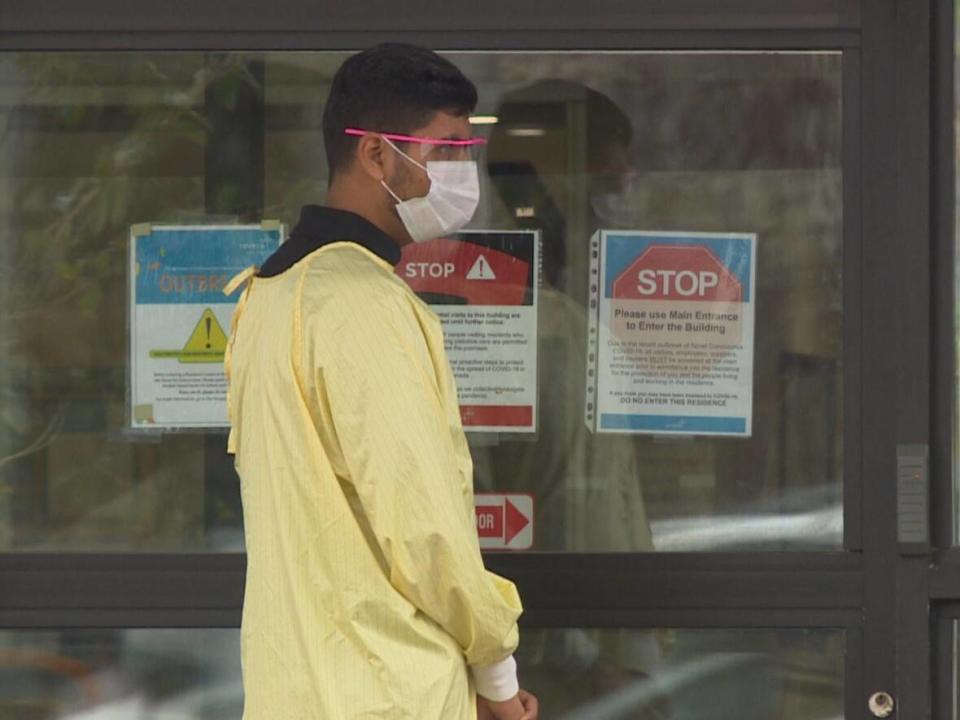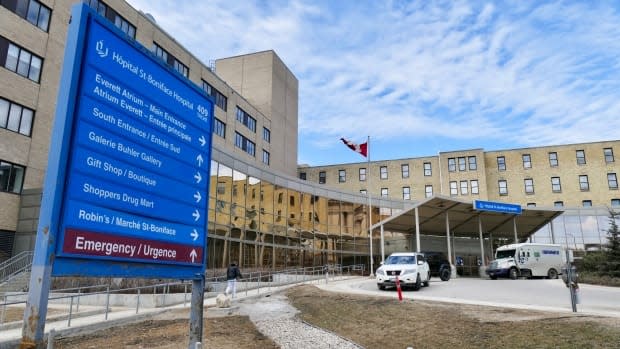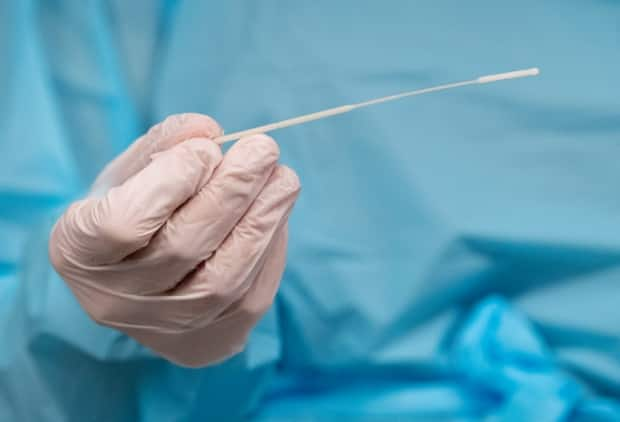Unvaccinated Manitobans working with vulnerable face choice of COVID-19 test or discipline

Get tested or face the consequences — that's the new choice facing potentially thousands of Manitobans who work with vulnerable populations but have yet to be vaccinated against COVID-19.
Public health officials hope the inconvenience of being subjected to a test every 48 hours, logging it and showing the result to a supervisor will sway some to join the growing number of vaccinated Manitobans.
But the testing requirement, which takes effect Monday, may not convince everybody.
Ron Falk, board chair of the Steinbach-based Hanover School Division, worries it will inflame tensions.
"It's just another divisive thing, right, and doesn't matter really which side of the fence you're on," Falk said.
He suspects the hassle of routine testing will push some employees to walk away from their jobs — in education and beyond.
"It's happening in all phases of society now" said Falk, whose school division is in an area of southeastern Manitoba with a vaccination rate below the provincial average.
He said Friday he didn't know for certain if any Hanover employees would walk.
"Everybody is taking a look at it and no doubt there will be some who will leave. That's the hand that we've been dealt."
Test or walk?
Unvaccinated workers in Manitoba hospitals, schools and licensed daycares are among those now facing regular COVID-19 testing before showing up for work.
And they could have a lot of company: as of Friday, nearly one-quarter of Manitoba's health-care staff (roughly 10,000 of 42,000 people) had yet to disclose their vaccination status, according to Shared Health, though more results are coming in.
Among the roughly 32,000 who had revealed their status as of Friday, 1,801 workers were unvaccinated, Shared Health said.
Under the rules coming into effect Monday, certain employees who work with the public will either have to be fully vaccinated against the illness or provide proof of a negative test result 48 hours before their shift begins.

Rapid testing will be made available at workplaces for unvaccinated employees. School division employees must have one supervised test a week, while other tests can be taken at home.
People who do not comply with the public health order will be referred to human resources and "appropriate action will be taken," the province said.
Shared Health said any employee who refuses to participate will be placed on unpaid leave. They cannot go to work, get paid, use their banked vacation, stat holiday or overtime hours, and no contributions will be made to their pensions.
The possibility of staffing shortages has prompted operators of personal care homes in the southern Manitoba cities of Winkler and Morden to warn the families of residents to be ready to pitch in or remove their loved ones.
News of the new testing requirement, announced weeks earlier, swayed some employees at Seven Oaks School Division in Winnipeg to roll up their sleeves.
"We had about 50 people say, 'Well, if those are the choices, I'm going to get vaccinated,'" Seven Oaks superintendent Brian O'Leary said.
He said around 98 per cent of the division's 1,500 employees are inoculated, leaving 35 employees subject to routine testing beginning this week. Two other employees have gone on unpaid leave, O'Leary said.
The high vaccination rate doesn't surprise the division's superintendent. You could hear cheering in his schools last spring each time more teachers became eligible for the vaccine, he said.
School division free of COVID-19
He notes Seven Oaks schools have not reported a positive COVID-19 case in a month. O'Leary credits the vaccines for that.
"I'm absolutely in favour of anything that enables us to keep kids in school and offer something much closer to a full school program, where kids can sing in the choir, play an instrument, play sports, join extracurriculars, be with friends.
"Kids really miss school and we miss them. And now that we have them back, we want to keep them."

Logistically, Manitoba's efforts to test as many as thousands of people for COVID-19 will be complicated.
"To be perfectly frank, I'm not sure how it's going to roll out on Monday," said Shannon McAteer, health-care co-ordinator for the Canadian Union of Public Employees, which represents 18,000 health-care staff working in a range of facilities and locations in Manitoba.
Each work site must devise its own processes, while ensuring the privacy of affected employees is protected, she said.
McAteer said some unvaccinated workers are concerned about child-care arrangements if they have to head to work earlier or later.
Rebecca Clifton, administrative director for the Paramedic Association of Manitoba, is concerned of the added burden on already overworked paramedics. Some will have to travel to a different community every 48 hours to get tested.
"I'm not sure that it's going to be the smoothest of processes," she said. "I just hope that this rapid testing is as functional as it's been made to be."
Despite the hassle, she said paramedics are willing to do what is needed to keep themselves and their patients safe.
So far, Manitoba has shipped 1,130,700 rapid tests to 616 different sites. The province has budgeted $300,000 until year's end to deliver the tests, which were provided by the federal government.

